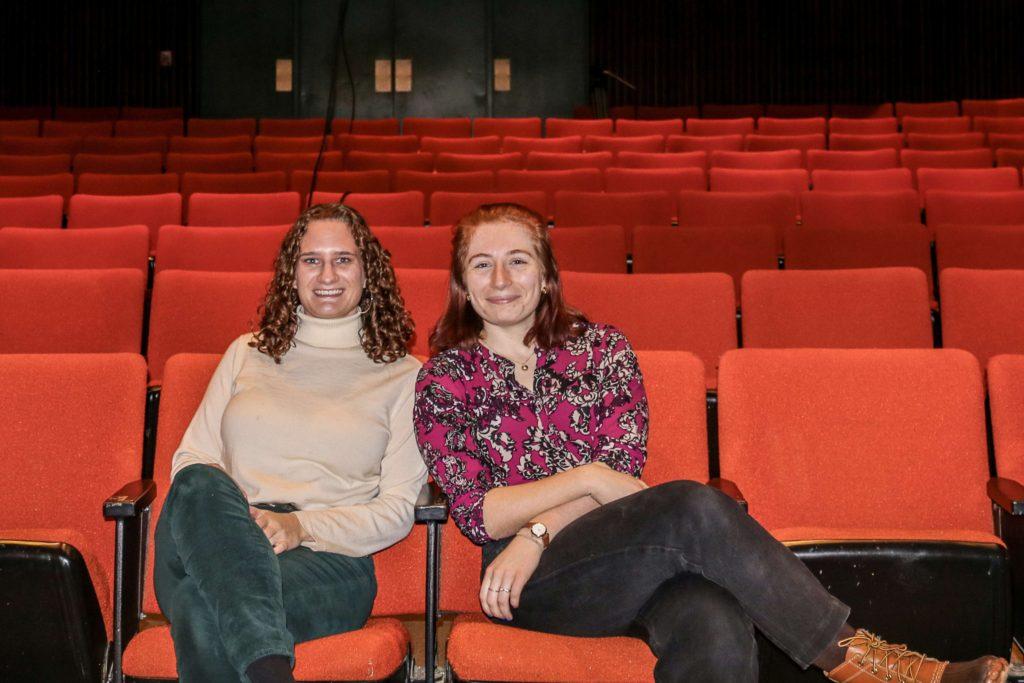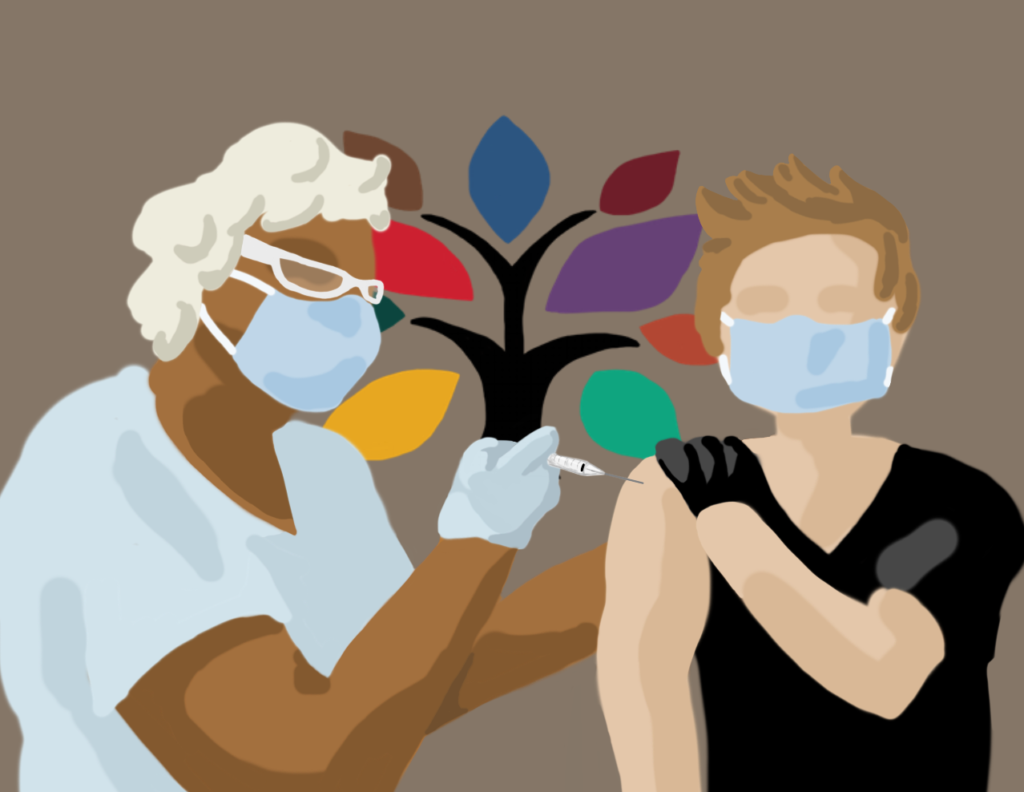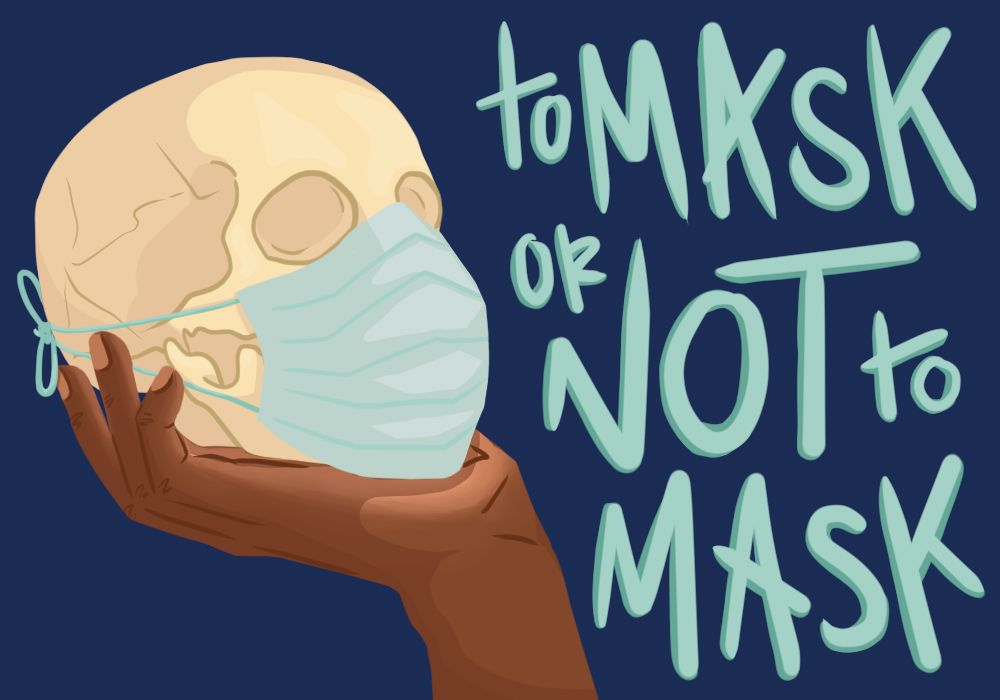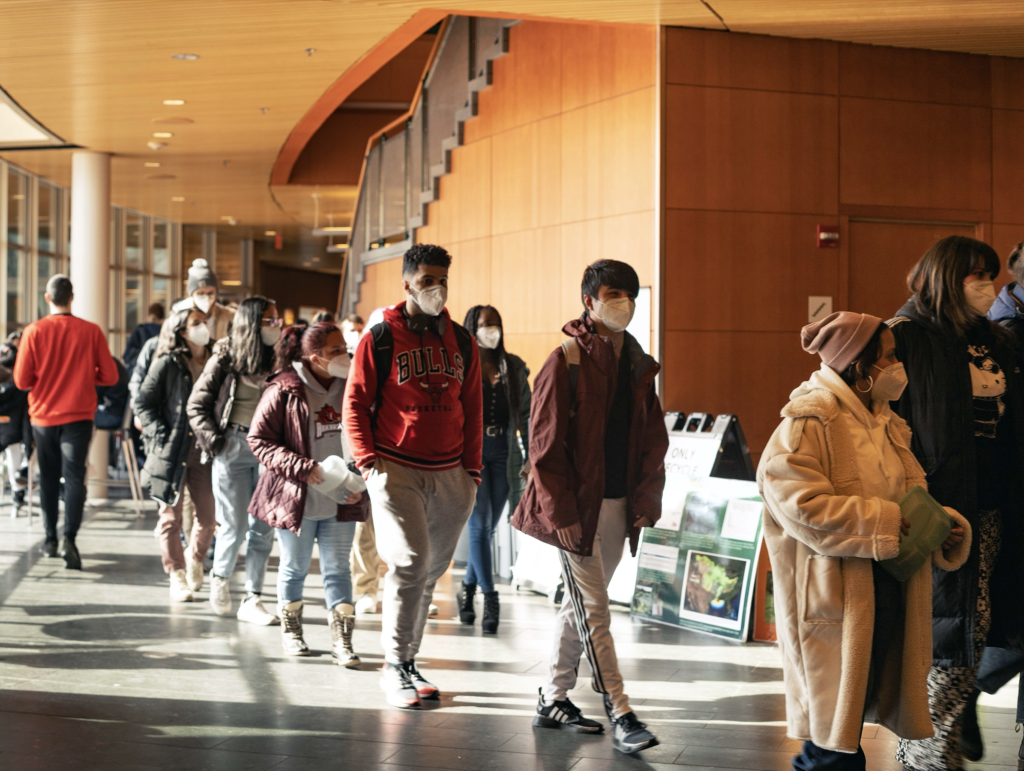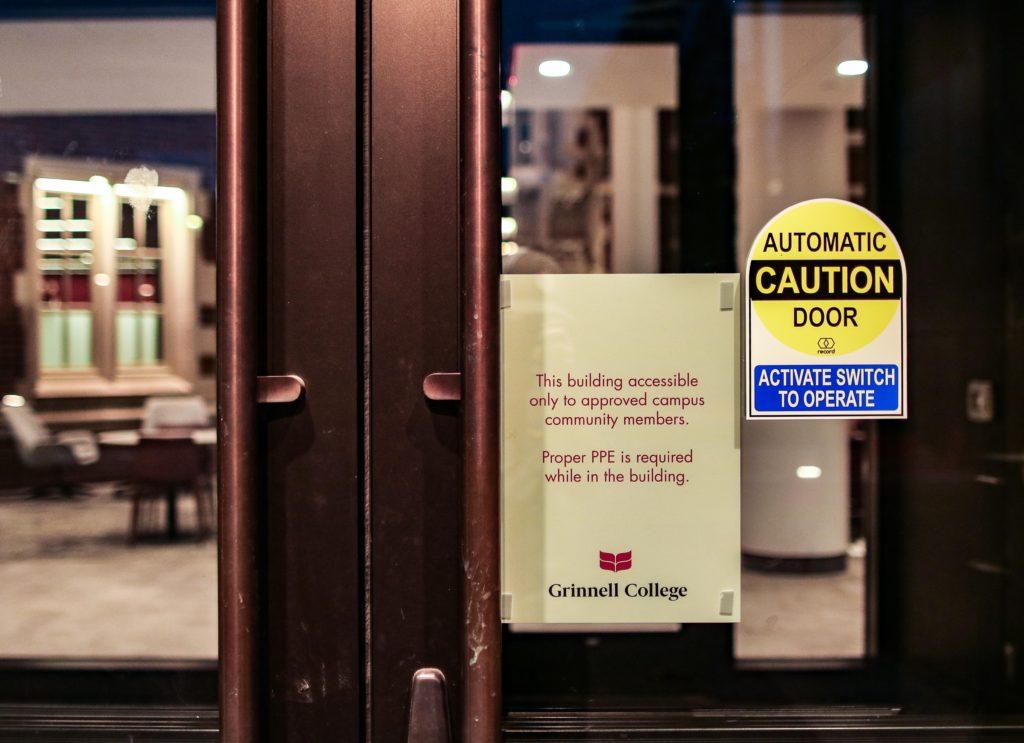Studio art major Cassidy Christiansen ’20 thought that they would be spending the week before spring break preparing their upcoming Smith Gallery show. Theatre and dance majors Jacob Leder and Maddy Smith, both ’20, were ramping up rehearsals for plays they were each directing as Mentored Advanced Projects. Lilya Woodburn ’20, a music major, was rehearsing repertoire for her spring recital.
Before any of these seniors’ projects could come to fruition, the College made the decision to shift to distance learning in response to the increasing threat of the COVID-19 pandemic that has interrupted the lives of billions and caused the death of thousands. Distance learning will have uniquely difficult consequences for the music, studio art and theatre and dance departments as they navigate to teaching, learning and creating art without the physicality so central to their instruction and practice.
“You can’t email somebody a piece of pottery, you know?” said Christiansen, who is currently taking a ceramics course and the studio art senior seminar. “Most students don’t have access to a kiln or have the means to carry, you know, like 20 pounds of clay at home with them.”
While the administration told all faculty members that there was a strong possibility of distance learning as early as the week prior to the announcement, the official decision on Tuesday, March 10 left many scrambling to modify their courses. Professor Matthew Kluber, who also serves as chair of the studio art department, went into his printmaking and seminar courses the following Wednesday without much idea how he would continue to conduct them.
Many professors have been working through spring break to adapt their syllabi to distance learning. Kluber has decided to guide his students through a more research-based version of the course with increased focus on the academic study of artists and technique. His seminar will also focus on the skills involved in starting an art career, such as the writing of artist statements, resumes and cover letters. Still, he said, much will be lost without access to physical materials and in-person instruction.
“We’re still kind of trying to deal with [the fact] that you kind of begin to gain momentum in the semester and then it’s over,” said Kluber. “Studio critique, you know, getting feedback from one another … those are the kinds of subtleties that will be sorely missed.”
The music department faces similar challenges, with the primary barrier being a lack of physical access to instruments. The department chose to extend their loan policy, allowing students to transport their rented instruments home with them to do so. However, the size and quantity of instruments like pianos, organs and upright basses makes this impossible for some.
Woodburn, who takes both organ and voice lessons, will still be able to practice both her instruments. She works part-time as an organist at Grinnell United Methodist Church and is currently living at Hotel Grinnell to take time to apply to jobs while in town before going home. Still, accessing an organ is not the only inconvenience involved in her remote lessons with applied music associate Linda Bryant.
“We’re still trying to figure out technology and how virtual lessons are going to work, especially since we’re on different organs,” said Woodburn. “She can’t just demonstrate how a thing goes, like reach over my shoulder and play it or anything like that. And she can’t necessarily see what I’m doing as I’m playing.”
Instructors are developing creative solutions for students without access to their instruments. Some have proposed sending out masterclasses for their students to view and then respond to in lieu of formal instruction.
Students with senior recitals, which are required to graduate with honors in music, will have the option of performing virtually through platforms such as Facebook Live and YouTube. Grinnell Singers and Jazz Ensemble are creating virtual alternatives to performances. Students in the ensembles will individually record themselves performing their parts to be edited and compiled into a single video.
Such a project proved impossible for the Grinnell Symphony Orchestra, directed by professor and department chair Eric McIntyre.
“As performers, we know that when we put something out, we’re sounding out into the void unless we’ve got an audience. … If you give a recital by Facebook Live, … you don’t get the vibration in the room of the other people,” said McIntyre. He also pointed out the ways recording will be a learning opportunity for those ensembles taking on virtual projects.
Faculty and students of the theatre and dance department are also discussing alternatives for the rest of the semester. With the switch to distance learning comes both the cancelation of all planned productions such as the Mainstage production “Dance Nation” as well as the loss of in-person collaboration between actors, dancers and directors.
Not all, however, is lost. Information and Technology Services (ITS) has worked to make software used for technical theatre widely available by the students enrolled in scenic and lighting design courses taught by associate professor and theatre and dance department chair Justin Thomas.
“If you look back at the last couple years, we’ve done a lot of shows with projection, so that certainly makes teaching of design a lot easier because you’re going to be spending a lot of time on the computer anyway,” said Thomas. “I think in terms of performance, what this means is using this kind of platform … it allows the physical artists, the actors and the movers to get a sense of what the visual world looks like.”
Yet, for seniors whose productions and exhibitions are now canceled, a significant part of the artistic career at Grinnell will be lost. Leder and Smith had both been planning their MAPs well in advance of this semester. Leder was directing Annie Baker’s “The Flick” while Smith was spearheading the direction of Sophie Treadwell’s “Machinal.”

For theatre and dance majors, MAPs present a unique opportunity to guide a team comprised entirely of students while also receiving financial and advising support from the department. Alongside Smith, Lily Fitzsimmons ’20 served as stage and production manager, Yonu Cha ’20 as costume designer, Carlos Ventura ’20 as lighting designer and Nai’ya Willis-Hogan ’20 as set designer. All with the exception of Ventura were receiving MAP credit for the project.
Because MAPs are completed for course credit, all of these students are in the process of reevaluating how their projects will proceed. Both Leder and Smith are planning to bulk up the writing portions of their MAPs, annotating their scripts and contextualizing them with theoretical texts. The directors will have the option of picking up where they left off in the future, as well as directing actors over video-call platforms.
Smith said her inability to continuing work with her creative team has made it difficult to proceed with a piece of art “that will never be realized.” She described the grieving process as ongoing.
“I do believe that it is possible to be disappointed about something but understand it logically. I’m disappointed that I do not have access to Bucksbaum, even though I understand it,” said Smith.
For studio art majors, public exhibition of original work is a graduation requirement. According to Professor Kluber, all graduating seniors met the requirement before this semester.
Christiansen was planning to use a variety of media to continue to explore themes of body and positionally present in their other work. Inspired by the recent Smith Gallery show of Tess Kerkhof and Clara Dingle, both ’21, Christiansen said they intended to create an immersive installation involving a chair sculpted to the shape of their own body. Before the March 10 announcement went out, they were planning on getting the keys to the space from studio art technical assistant Joe Lacina.
Putting on an exhibition is a learning process for artists. Christiansen said they see their art differently when considering the way a piece hangs on a wall or interacts with the lighting in the room. Like music, theatre and dance, the practice of visual art changes when intended for an audience.
“I’m just going to keep, you know, trying to do the work that I can do and work with my professors … it’s not what I want, but there’s not another option right now,” said Christiansen.
The annual Bachelor of Arts Exhibition, in which students’ work is juried and displayed in the Grinnell College Museum of Art, is also canceled. Christiansen emphasized the importance of having work displayed in juried exhibitions for future employment. Museum staff are still exploring ways for the event to proceed alternatively.
The COVID-19 pandemic has sent artists’ lives into flux far beyond just Grinnell. For those working in theatre, an art form to which large gatherings of people are essential, the guidelines to prevent the spread of disease have brought artists to a grinding halt. On March 12, all Broadway theaters shuttered their doors, leaving thousands indefinitely unemployed.
“I certainly cannot think of an art form that is more compromised by this,” said Leder. “The sad thing about theater—the great thing about it and also the tragic thing, in this case—is that the magic really comes from the liveness of it … You can’t really replicate what it’s like to be in the room in rehearsal as an actor and as a director, and when the show goes up, as an audience member.”
Smith pointed out that the way that many are dealing with the process of social isolation and quarantine is by turning to work created by artists.
“It’s really nice in some ways that so many new shows or new movies or new podcasts are finally being unearthed with this amount of people and the demand being so high, but I think it’s important to remember that artists aren’t getting the unemployment benefits that they deserve,” said Smith. “I think it’s important that people remember that when they are in this time of need, that they’re turning to the artists.”


















































